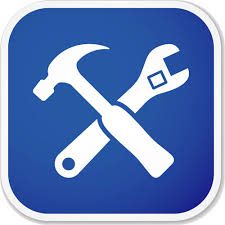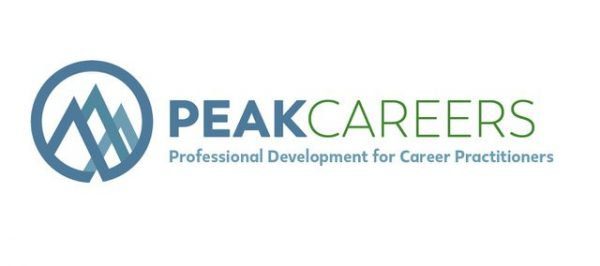Far too often, the message delivered to young people is that “everyone needs to go to college” to be successful. Evidence of this assumption surfaces everywhere. High schools put up signs with seniors who have been accepted into colleges. NPR publishes articles that say the only downside to getting a college degree is not finishing the degree, picking the wrong college, or choosing the wrong major. As a career practitioner this strikes me as odd. Not only is this detrimental to our economy, but it is disrespectful to all those people whose skills and gifts lead them toward trades / crafts occupations. We need all jobs to be honored in this country. It is clear this is not often the case.
There are 10’s of 1000’s of jobs that do not require a college degree that are wonderful choices for people, and YES, make very good money. I know many people who have great jobs with no bachelors degree, from a great career in the radio business, to auto mechanics, HVAC, and many others. Businesses in the trades / crafts areas are desperate for bright people who can problem solve and produce quality work. Why do we shuffle EVERY student who is bright in math / science to college? If they want to work with their hands and produce goods, why wouldn’t we make it OK for them to choose a trade? I think of the German model of education that provides two different tracks in high school allowing bright young men and women who want to work in a craft or trades area to get the training they need… and it is OK to do this, not second class like it is here.
If you have not read Shop Class As Soul Craft by Matthew Crawford, you should. He has a PhD in Philosophy and was working for a professional journal writing abstracts, but was always drawn back to his work on motorcycles and the problem solving skills it took to do that job. Matthew is one of many people who probably was given one choice in high school. “You are bright, you are going to college.” Matthew argues that our country has failed an entire population of people by continuing to cut shop classes and offering high school technical education for those people that can’t go to college. (noticed I said “can’t go to college” which is loaded with all kinds of implications. Because they do not LOOK like they are college material? They don’t learn best by reading? Because they are poor?… this list goes on and on.)
Having been a high school guidance counselor who worked in HS Technical Centers and a typical high school, I could see the biases everywhere. One of the problems is that guidance counselors and teachers have nearly always been on one path. In high school they completed the college prep program. Then attended college. Then went to work in a high school. Most have no idea what skills a tradesperson requires. They can’t help it, we hang out with people who are like us. I was fortunate to have gone to college and worked at six different colleges, but after leaving Colby College in 1984 I serendipitously ended up at a high school vocational center and it CHANGED MY LIFE! I saw very intelligent students doing amazing craft work but could not pass their high school classes. It taught me a lesson I have never forgotten.
The fact that many of my uncles worked in the construction field helped me to see a different side of our society, but it wasn’t until I worked at the technical center that I finally understood. My uncles were masons, carpenters, electricians, and train engineers and suddenly I “got it”. Here are highly skilled, intelligent, problem solvers that made a very good living. Different than my choice, but very good none the less. Don’t you want the plumber, mechanic, or electrician to be great problem solvers with the intelligence to fix your problem? Then we need to encourage bright boys and girls to consider these options.
And guess what? You can not send their type of skilled labor overseas to India or Asia to get done.
We as career practitioners need to pay attention to our biases. To view the world of work in its totality. To give another story line to all professions and to honor all jobs in this country. Teachers, guidance counselors, principals, college faculty, parents, and other leaders need to make it OK for young people to choose something besides going to college.
Our great country can not afford to ignore the many wonderful craft / trade options available, our economy needs it, communities need it, and most importantly individuals who have these talents need to know that it is OK to work in the trades.
Please be clear, I am huge supporter of ALL types of education and believe strongly in the Liberal Arts education, graduate work, bachelors, and associate degrees. But we must recognize, support, and give honor to all career pathways, not just education.
One challenge to you is to discover career pathways including apprenticeships, on the job training, certificates/diplomas, and every other option for our clients and students. And to honor and respect all these choices.
And my second challenge is to do what you can to affect real change in our communities to honor and respect all career pathways.
—————————————————
Jim Peacock is the Principal at Peak-Careers Consulting and writes a monthly newsletter for career practitioners. Peak-Careers offers discussion-based online seminars for career practitioners focused on meeting continuing education needs for CCSP, GCDF and BCC certified professionals as well as workshops for career practitioners and individual career coaching.
Sign up here to receive my TOP 10 TIPS WHEN WORKING WITH AN UNDECIDED PERSON. You can also receive the career practitioners newsletter which includes a variety of career topics, industry news, interesting events, and more.





I couldn’t agree more, Jim! Great post!
Claire
That was terrific, nice work Claire.
Mac
Thanks Claire and Mac for letting me know you like it.
This is a subject near and dear to my heart and needs to be brought up to the forefront. It is simply to EASY for people to say, “go to college”. Which in essence for many people is just putting the decision off and not really dealing with the big question of “What do I want to do and how do I get there?”
Jim, great article and thanks for writing! I agree that not everyone needs to go to college. However, let me present a different perspective on the topic, one that I personally hold. When I think of my college education, my first thought is how much of a positive life-changing experience it was for me. The people, ideas, and experiences I encountered are such an integral part of who I am as a person now (let alone great preparation for a career), and perhaps there are people like me who remember those years fondly and want young people to have the same type of positive experience. In that way, for me, it has nothing to do with thinking that jobs requiring a college degree are any better or more honorable than other types of careers. I want people to pursue what helps them to grow, and college is that experience for so many people!
@Peter, excellent point, I too want people to grow and have great experiences, meet people, learn, and all that. But, that comes with a price tag and people need to know there are costs associated with the experience and that they need to be “wise consumers”.
I am working with a person now who has $100,000 in student loans and halfway through a Masters Degree she DOES NOT want to use! She sees higher education as her only option.
Would she have been just as happy in a different pathway and not $100,000 in debt? We’ll never know. But as career counselors we need to make sure people know the options and to help them be ‘smart consumers’ in assessing all career pathways.
Absolutely! How many people go to college or further only to discover they don’t like their career! Although few seem to regret being “educated” they often say “I knew all along I didn’t like law, or always wanted to work outdoors…”. I love the part in your blog where you say the trades don’t get outsourced! The current value that is placed on technology and big data is obscene-people are still needed. It’s ironic how being educated is highly valued by society but education itself and educators are not.
Thanks Carolyn,
It really is not if one is better than the other, its simply that all training, education, skills, occupations are needed to keep our economy going strong… AND for people to have self worth. People who feel good about themselves is a win-win for society.